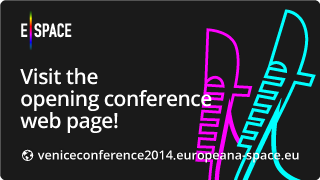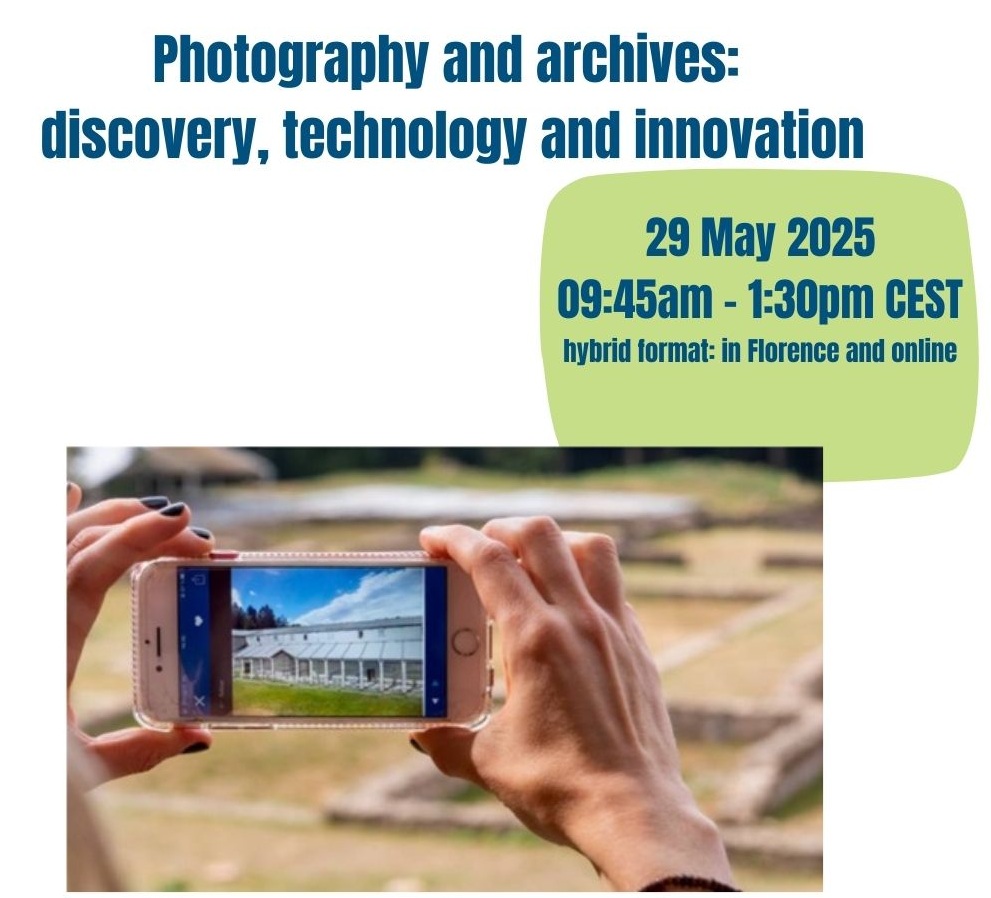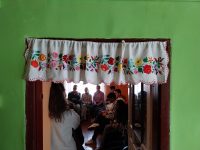-
Join the
Digital Meets Culture
Newsletter! -
Join the
Digital Meets Culture
Open Newsroom! If you have interesting news and events to point out in the field of digital cultural heritage, we are waiting for your contribution.
If you have interesting news and events to point out in the field of digital cultural heritage, we are waiting for your contribution.
-
Free text
-
-
Upcoming events
-
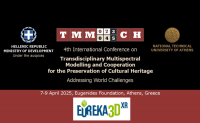 Athens (Greece), 9 April 2025
Athens (Greece), 9 April 2025EUreka3D-XR project will be presented in a Special Panel during the 4th International Conference TMM-CH Transdisciplinary Multispectral Modelling and Cooperation for the Preservation of Cultural Heritage. The panel is set on 9 April h. 14.30, with specialists in the domain … Continue reading →
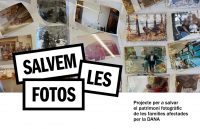 How to help: https://gofund.me/8793f0f1
How to help: https://gofund.me/8793f0f1On October 29 2024, the Valencian Community in Spain was severely affected by an extreme weather event known as DANA (Isolated Depression at High Levels), which unleashed torrential rains, resulting in catastrophic flooding across the region. In eight hours, parts of … Continue reading →
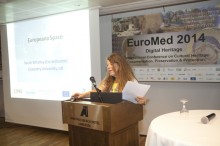
Project Coordinator Professor Sarah Whatley spoke about Europeana Space project during a focused workshop, dedicated to analyse the stategies for cultural heritage in the new digital age, held during the important congress Euromed in Cyprus (3-8 November 2014).

Marinos Ioannides, Sarah Whatley and Antonella Fresa
Europeana Space was presented to the congress’ wide audience of international cultural institutions as the new Best Practice Network of allied partners who intend to explore new ways for the creative re-use of digital cultural heritage. The final aim of Europeana Space is to pave the way for unlocking the business potential of cultural heritage for both cultural Institutions and creative industries.

The audience at Euromed 2014 congress
The workshop is organized by Promoter, who is the Technical Coordinator of Europeana Space, and included representatives of several important projects in the domain of digital cultural heritage.
The title of the workshop is “The Digitization Age: Mass Culture is Quality Culture. Challenges for cultural heritage and society” and took place on 3rd November at 4 pm.
Download the workshop’s agenda (PDF, 438 Kb)
Visit the Euromed 2014 Congress website: http://www.culturalheritage2014.eu/
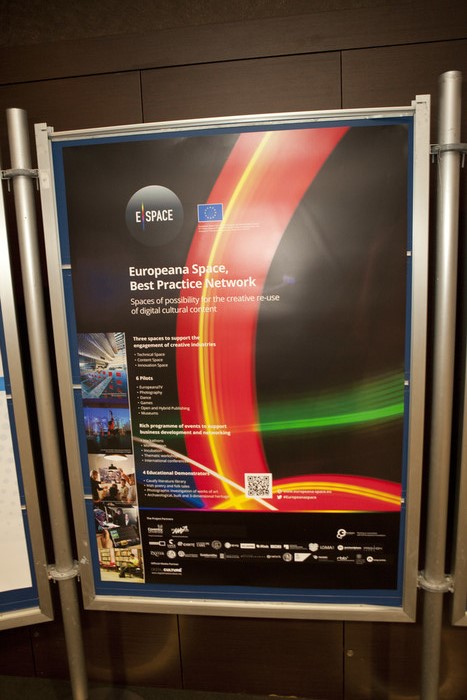
Europeana Space in the poster session of the congress

A Memorandum of Understanding has been signed between DCH-RP and SUCCEED projects for the promotion and presentation of the respective results and for the organisation of joint events and other activities, focusing in particular on the definition of best practices for text digitisation and long term preservation.
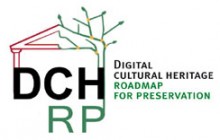 DCH-RP (Digital Cultural Heritage Roadmap for Preservation) is a Coordination Action supported by the European Commission under the FP7 e-Infrastructure Capacities Programme, to design a Roadmap for the implementation of a federated e-Infrastructure for preservation of DCH content. The Roadmap will be supplemented by practical tools for decision makers and validated through a range of proofs of concept, where cultural institutions and e-Infrastructure providers work together on concrete experiments.
DCH-RP (Digital Cultural Heritage Roadmap for Preservation) is a Coordination Action supported by the European Commission under the FP7 e-Infrastructure Capacities Programme, to design a Roadmap for the implementation of a federated e-Infrastructure for preservation of DCH content. The Roadmap will be supplemented by practical tools for decision makers and validated through a range of proofs of concept, where cultural institutions and e-Infrastructure providers work together on concrete experiments.
![]() SUCCEED (Support Action Centre of Competence in Digitisation) is a support action funded by the European Union that promotes the take up and validation of research results in mass digitisation with focus on the textual content. Succeed aims to improve the availability of tools and resources, fosters the transfer of knowledge, the creation of research consortia and explores the role of emerging business models, funding opportunities and public-private partnerships to improve large-scale text digitisation techniques. The action will be implemented through the Impact Centre of Competence in Digitisation, an output of the IMPACT FP7-project which gathers and exposes digitisation tools and resources. The Centre will sustain the actions beyond Succeed since a legal entity will be substantiated and a roadmap for its long-term sustainability will be defined during the action.
SUCCEED (Support Action Centre of Competence in Digitisation) is a support action funded by the European Union that promotes the take up and validation of research results in mass digitisation with focus on the textual content. Succeed aims to improve the availability of tools and resources, fosters the transfer of knowledge, the creation of research consortia and explores the role of emerging business models, funding opportunities and public-private partnerships to improve large-scale text digitisation techniques. The action will be implemented through the Impact Centre of Competence in Digitisation, an output of the IMPACT FP7-project which gathers and exposes digitisation tools and resources. The Centre will sustain the actions beyond Succeed since a legal entity will be substantiated and a roadmap for its long-term sustainability will be defined during the action.
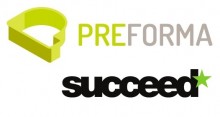
A Memorandum of Understanding has been signed between PREFORMA and SUCCEED projects for the promotion and presentation of the respective results and for the organisation of joint events and other activities, focusing in particular on the use and quality check of common standards for text digitisation and long term preservation.
 PREFORMA (www.preforma-project.eu) is a Pre-Commercial Procurement project co-funded by the European Commission within the framework of the FP7 ICT Programme with the aim to address the challenge of implementing good quality standardised file formats for preserving data content in the long term and to give memory institutions full control of the process of the conformity tests of files to be ingested into archives.
PREFORMA (www.preforma-project.eu) is a Pre-Commercial Procurement project co-funded by the European Commission within the framework of the FP7 ICT Programme with the aim to address the challenge of implementing good quality standardised file formats for preserving data content in the long term and to give memory institutions full control of the process of the conformity tests of files to be ingested into archives.
![]() SUCCEED (Support Action Centre of Competence in Digitisation, http://succeed-project.eu) is a support action funded by the European Union that promotes the take up and validation of research results in mass digitisation with focus on the textual content. Succeed aims to improve the availability of tools and resources, fosters the transfer of knowledge, the creation of research consortia and explores the role of emerging business models, funding opportunities and public-private partnerships to improve large-scale text digitisation techniques. The action will be implemented through the Impact Centre of Competence in Digitisation, an output of the IMPACT FP7-project which gathers and exposes digitisation tools and resources. The Centre will sustain the actions beyond Succeed since a legal entity will be substantiated and a roadmap for its long-term sustainability will be defined during the action.
SUCCEED (Support Action Centre of Competence in Digitisation, http://succeed-project.eu) is a support action funded by the European Union that promotes the take up and validation of research results in mass digitisation with focus on the textual content. Succeed aims to improve the availability of tools and resources, fosters the transfer of knowledge, the creation of research consortia and explores the role of emerging business models, funding opportunities and public-private partnerships to improve large-scale text digitisation techniques. The action will be implemented through the Impact Centre of Competence in Digitisation, an output of the IMPACT FP7-project which gathers and exposes digitisation tools and resources. The Centre will sustain the actions beyond Succeed since a legal entity will be substantiated and a roadmap for its long-term sustainability will be defined during the action.
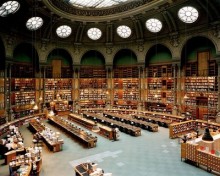
![]() The Succeed project is organising at Bibliothèque nationale de France (BnF) the conference “Succeed in digitisation. Spreading excellence”, to be held on November 28th, 2014.
The Succeed project is organising at Bibliothèque nationale de France (BnF) the conference “Succeed in digitisation. Spreading excellence”, to be held on November 28th, 2014.
Succeed is an EU funded project that promotes the take-up and validation of tools and resources for mass digitisation.
The conference schedule will focus on the following blocks based on the main outcomes of Succeed:
- Libraries’ experiences in the take-up of tools.
- Results on competitions.
- Roadmap for the future of digitisation in Europe.
- Interoperability of tools for text digitisation.
- Recommendations on formats, standards and licensing schemes related to digitisation.
- Panel discussions on digital humanities / digital conservation
The attendance to the conference is free, but registration is required. To register, please follow this link.
For further information, please visit http://succeed-project.eu/succeed-digitisation
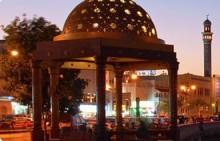
Under the Patronage of His Highness Sayyid Taimur Bin As’ad Al Said, the Arab States Research and Education Network – ASREN, announced its fourth annual event “4th International Platform on Integrating Arab e-Infrastructure in a Global Environment – e-AGE 2014” taking place on 10-11 December 2014 in Muscat, Oman. The platform was hosted by The Research Council (TRC) of Oman.
What is e-AGE all about?
Integrating Arab e-infrastructure in a Global Environment, e-AGE, is an annual international event organized by the Arab States Research and Education Network, ASREN. e-AGE is in line with ASREN’s major objectives related to creating awareness, promoting R&E collaboration and joint activities and establishing human networks in order to facilitate collaboration and cooperation among researchers and academicians in the Arab region and the rest of the world.
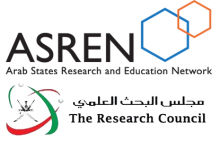 In e-AGE 2014, the main theme was “Intercontinental Connectivity of the Pan Arab Network”. ASREN started concrete steps towards interconnecting researchers and academics across the Arab States by launching its first PoP in London Telicity and working with its partners on new PoPs in UAE, Egypt and the Maghreb region. ASREN is also supporting the development of NRENs in some Arab countries. ASREN aims to give special attention and more focus on users and how the e-Infrastructure can support their needs in terms of services and applications. More sessions are dedicated to the users to present their research and education activities and then to identify how these users can be better served by NRENs.
In e-AGE 2014, the main theme was “Intercontinental Connectivity of the Pan Arab Network”. ASREN started concrete steps towards interconnecting researchers and academics across the Arab States by launching its first PoP in London Telicity and working with its partners on new PoPs in UAE, Egypt and the Maghreb region. ASREN is also supporting the development of NRENs in some Arab countries. ASREN aims to give special attention and more focus on users and how the e-Infrastructure can support their needs in terms of services and applications. More sessions are dedicated to the users to present their research and education activities and then to identify how these users can be better served by NRENs.
Topics of interest
- Research collaboration in energy, environment, health, climate, water, agriculture, biology, economy, medicine and other pressing global issues and problems.
- Perspectives on NRENs, including challenges, operation, sustainability, funding, governance, business models, security and services.
- Access to research and education resources, repositories, libraries and contents, clouds, grids and HPCs.
- Connectivity options including technologies, services, cables, circuits and equipment.
- Internet developments and impact on R&E networks.
- e-Services like e-Science, e-Government, e-Libraries, e-Learning, e-*…
- Virtual Research Environments, Science Gateways, Federation of Identities, eduroam, eduGAIN …
Events and Activities
ASREN is becoming more visible and more active in the region and beyond. It has developed a new shareholder scheme with more Arab NRENs joining as well as more supporting organizations. Following on the success of e-AGE in 2011, 2012 and 2013, e-AGE 2014 included events, workshops, meetings centered on the following themes:
- The 7th Event on Euro-Mediterranean e-Infrastructure
- The 4th annual meeting of ASREN
- AROQA 6th Annual Conference
- EUMEDCONENCT3 Meeting
- Technical Workshops on R&E networking (to be announced)
Moreover special sessions were dedicated to specific domains, mainly focusing on experiences in connectivity and e-Infrastructure, applications and services in variety of scientific domains and case studies with impact indicators and measures. It is also important to show how research infrastructure created benefits to communities and collaboration. It is still critical to show how research connectivity can promote collaboration and innovation. Different discussions were stimulated during e-AGE to drive outcomes and concrete results on practical steps towards developing a regional e-Infrastructure.
Venue
Grand Hyatt Hotel, Muscat, Oman
Important dates
- 1st October: Submission Deadline (Papers, Posters and Presentations)
- 15th October: Acceptance Notification
- 27th November: Final Pdf posters, Word papers and Presentations slides
- 4th December: Registration Deadline
- 10th-11th December: e-AGE 2014
Registration fees
- Speakers: Free
- Papers Authors: 50 Euro
- ASREN Members: 150 Euro
- ASREN non-members: 250 Euro
Further information
Conference official website:
Papers and Poster submission:
- Salem Al-Agtash, alagtash@asrenorg.net, Mobile: +962 77-720-1998
- Federico Ruggieri, federico.ruggieri@roma3.infn.it, Mobile: +390 65-733-7232
Proposals, Presentations and Program:
- Yousef Torman, torman@asrenorg.net, Mobile: +962 77-990-7900
Registration, Payment, Reservations and Others:
- Ola Samara, osamara@ASRENOrg.net, Mobile: +962 78-868-6802

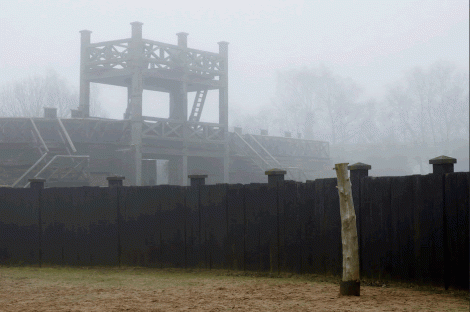 We are preparing for a very 21st Century event to be held at the Lunt Roman Fort in Coventry, aimed at helping to breathe new life into the historic Fort – and applications are now open for people to get involved in a unique weekend of creativity, invention and fun.
We are preparing for a very 21st Century event to be held at the Lunt Roman Fort in Coventry, aimed at helping to breathe new life into the historic Fort – and applications are now open for people to get involved in a unique weekend of creativity, invention and fun.
Ludi Lunt (roughly translated from Latin: ‘public games at the Lunt’) will run from 6pm on Fri 5th September 2014 to 4pm on Sunday 7th September, and is a hackathon-style event. The event aims to bring together creative people from around the UK to devise ways to improve the visitor experience, reveal more of the site’s fascinating past and breathe new life into this cultural gem, helping to re-establish the Lunt as a major Roman visitor attraction.
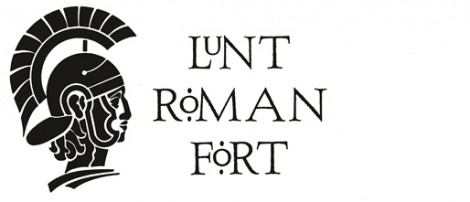 Ludi Lunt is being organised by staff from the Lunt and its management team, who are working with a diverse group of local historians and hackathon experts to put this very special event together. They are now looking to recruit people with a range of skills to take part in the event, including historians, artists and illustrators, technologists, engineers, hackers, gamers, app-makers and coders, writers, performers, designers, social media whizzes, educational professionals and craftspeople, students – as well as anyone who feels that they have ideas to contribute to a weekend of innovation and creativity.
Ludi Lunt is being organised by staff from the Lunt and its management team, who are working with a diverse group of local historians and hackathon experts to put this very special event together. They are now looking to recruit people with a range of skills to take part in the event, including historians, artists and illustrators, technologists, engineers, hackers, gamers, app-makers and coders, writers, performers, designers, social media whizzes, educational professionals and craftspeople, students – as well as anyone who feels that they have ideas to contribute to a weekend of innovation and creativity.
 In return for your efforts, you will have the unique opportunity to spend a weekend with other creative people at this amazing location, including camping, eating and working in the grounds of the Lunt. There will also be prizes for the best ideas generated over the course of the weekend, as well as the opportunity to be involved in the implementation of selected projects.
In return for your efforts, you will have the unique opportunity to spend a weekend with other creative people at this amazing location, including camping, eating and working in the grounds of the Lunt. There will also be prizes for the best ideas generated over the course of the weekend, as well as the opportunity to be involved in the implementation of selected projects.
There is no charge for you to be involved in the Ludi Lunt hackathon and applications are open now. Subscribe here!
For more information visit http://www.ludilunt.co.uk/
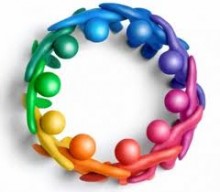
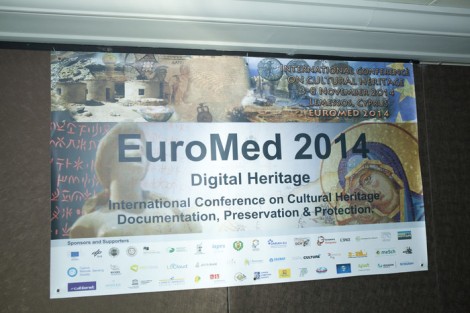 A panel workshop to disseminate the latest achievements and to foster collaboration in the digital cultural heritage sector was organized by Promoter Srl on Novermber 3rd, 2014 in the framework of the important congress Euromed 2014.
A panel workshop to disseminate the latest achievements and to foster collaboration in the digital cultural heritage sector was organized by Promoter Srl on Novermber 3rd, 2014 in the framework of the important congress Euromed 2014.
EU projects, organizations and professional operating in this field were invited to participate in the discussion.
Title of the session: The Digitization Age: Mass Culture is Quality Culture. Challenges for cultural heritage and society
The amount of digitized cultural heritage in Europe continues to grow: the digitization activities have a positive impact on the society, by making the cultural heritage more accessible for the citizens, and by generating benefits to the content owners. Several questions arise about digitized cultural heritage: how can digital cultural data be re-used at best, what is the impact on society, and how to preserve it in the long term? This panel discussion will try to answer these questions, and to present the latest EU projects that wish to identify a strategy for the cultural heritage in the new digital age.
The project that particpated to the workshop are both advanced projects such as ITN-DCH, Europeana Photography and Preforma, and newly launched projects as Europeana Space, RICHES, and the brand new Civic Epistemologies (kick-off meeting on 1st September 2014).
Starting from digitization, which produced such a big amount of cultural data, there are different areas of impact: to use such digitized materials, the e-infrastructures and preservation standards are needed, mostly for allowing to manage and search digital cultural objects and metadata, in terms of creative re-use and scientific research.
An analysis about the impact of digital cultural heritage on the society at large is necessary to understand how the society itself is changing, and how the role of citizens, who become an active part in the science and humanities, is crucial to guarantee a real development and participation in the research and educational fields.
A creative re-use of digital cultural content and repositories can also act as a leverage to unlock the business potential of European cultural heritage, generating benefits for companies and creating new job opportunities.
For more information:
Article “The Digitization Age: Mass Culture is Quality Culture. Challenges for cultural heritage and society.”, by Valentina Bachi, Antonella Fresa, Claudia Pierotti, Claudio Prandoni, Promoter srl (PDF, 1.2 Mb)
AGENDA Panel Workshop – The Digitization Age Mass Culture is Quality Culture
Congress website with more photos of the Euromed 2014 congress
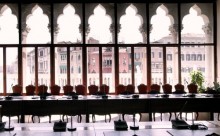
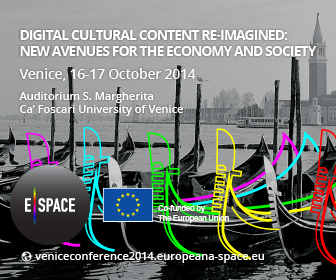 A rich program of speakers and creative sessions to build bridges between Cultural Institutions and Creative Industry.
A rich program of speakers and creative sessions to build bridges between Cultural Institutions and Creative Industry.
Digital Cultural Content Re-imagined: New Avenues for the Economy and Society.
The Opening Conference of Europeana Space is a great event held in Venice on 16-17 October 2014, in the beautiful locations of Ca’ Foscari University.
It is becoming extremely relevant that these two sectors, the Cultural Institutions and the Creative Industry, are more and more encouraged to get in connection, in order to unlock the business potential of digital cultural heritage.
Europeana Space project, including representatives of both sectors, intends not only to demonstrate that this connection is a win-win opportunity, but will also support its initiation and long-term viability by creating an open, fertile enviroment where the digital cultural content can be re-used in innovative creative applications and products.
Conference page:
http://veniceconference2014.europeana-space.eu
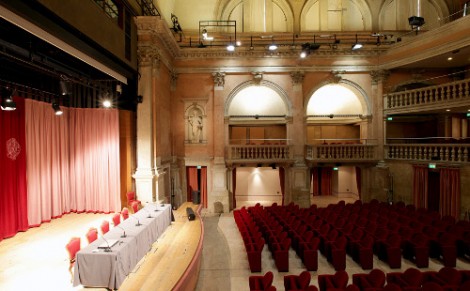
Conference Objectives:
- spreading the message that cultural heritage is a living process and is vital for the health of society and the growing economy
- presentation of market analysis and business models for reuse of digital objects / promote discussion on economic sustainability of cultural assets
- involve players in discussion on how digital cultural content can be re-used
- awareness-raising and public engagement in the Europeana Space project: set problems and show in which way the project is addressing them
Why in Venice / Ca’ Foscari University
- Italy as unique repository of cultural heritage with huge potential for valorization
- Venice meeting East and West, land and water, history and future
- Ca’ Foscari University merging economics & management with humanistic knowledge
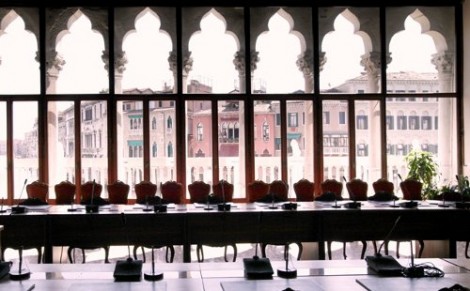
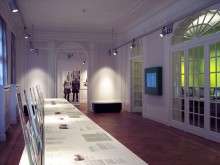
On July 1 2014, the Federal Chancellor of Germany Angela Merkel opened the new permanent exhibition “Resistance against National Socialism” in the German Resistance Memorial Center in Berlin. The entire social breadth and ideological diversity of the fight against the National Socialist dictatorship is are documented in 18 topic areas. The barrier-free permanent exhibition is accompanied by a wide range of media and materials, along with an audio guide in seven languages and a video guide in German Sign Language.
Our Europeana Space partner Museumsmedien produced the extensive digital media offers for the exhibition.
Links:
Federal Chancellor : http://www.bundeskanzlerin.de/Content/DE/Artikel/2014/07/2014-07-01-gedenken-widerstand-bkin.html
The German Resistance Memorial Center: http://www.gdw-berlin.de/en/home/
Deeper information to the topic of the exhibition
The German Resistance Memorial Center is located in the historical site of the attempted coup d’état of July 20, 1944, in the former headquarters of the Army High Command. Here, starting in 1942, several officers close to Friedrich Olbricht prepared the coup.
After Claus Schenk Graf von Stauffenberg’s attempted assassination of Adolf Hitler in the Führer’s headquarters in East Prussia, Operation Valkyrie was set into action here in the Bendler Block in the afternoon of July 20, 1944.
The coup attempt by civilian and military circles failed. That very same night, Ludwig Beck, Claus Schenk Graf von Stauffenberg, Albrecht Ritter Mertz von Quirnheim, Werner von Haeften (pron. Haften) and Friedrich Olbricht were shot dead.
Since 1953 a memorial in the inner courtyard has commemorated those events. In 1980 the commemorative courtyard was given its current form.
Nowadays the German Resistance Memorial Center doesn’t commemorate only the coup attempt of July 20th, 1944, but also many people and groups that resisted National Socialist injustice. The exhibition shows the entire breadth and diversity of opposition to the regime and reveals the different traditions, motives, aims and situations that enabled and influenced resistance to National Socialism between 1933 and 1945.
In 1933, most Germans welcomed the new rulers and their policies. Only a minority reacting to the violation of human rights and destruction of democracy put up resistance. Those people used the scope for manoeuvre that exists, even in a dictatorship, for compassion and political activity. Resistance became a clear part of the process of contending with National Socialism and its crimes.
By presenting what happened to individuals and the how resistance networks emerged, as well as the motivations and campaigns of the various resistance groups, we show the many and varied dimensions of the struggle against the Nazi dictatorship.

















